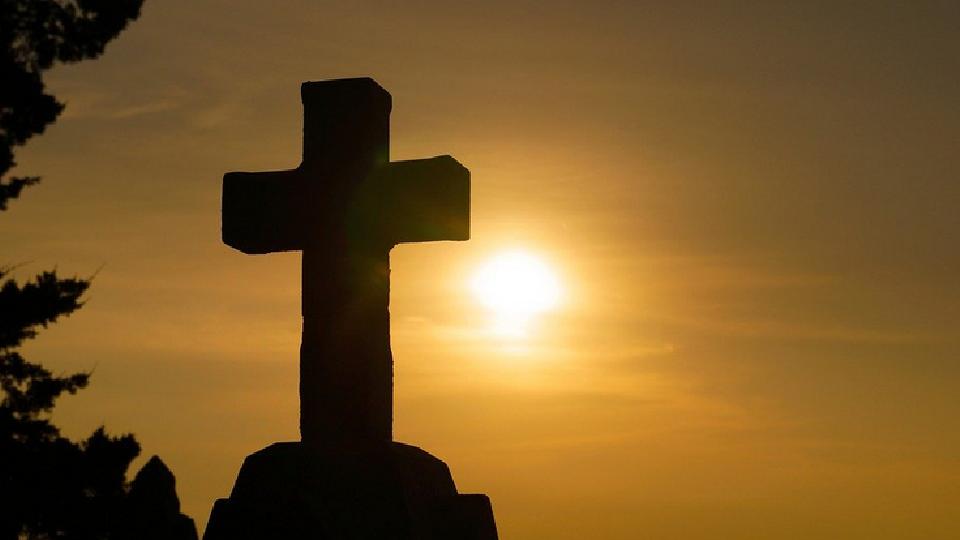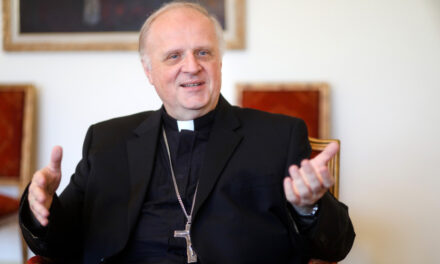"You will also be persecuted" - it is not safe to live as a Christian in most of the world today.
(…)
According to data from the Organization for Security and Cooperation in Europe, among the hate crimes committed in European states, crimes with a racist and xenophobic motive predominate, followed by anti-Semitic, anti-LMBTQ acts, and then crimes committed against Christians.
In recent months, many anti-Christian acts have taken place in Europe.
• On April 14, Allah akbar disrupted a Bach concert in Metz Cathedral! shouted several teenagers.
• The High Court of the United Kingdom recently rejected an application by students seeking an exemption from a requirement that the Michaela Community School in Wembley no longer be allowed to pray together before classes.
• On the night of April 16, unknown persons damaged the tomb of Bulgarian Patriarch Neofit in Sofia.
• A 37-year-old perpetrator took special valuables worth ten thousand euros from the church of Castelvecchio di Compito in Tuscany, set the wooden altar part on fire and fled.
• While preparing for a terrorist attack, the police in Düsseldorf arrested several teenagers who wanted to attack churches and police stations with knives and Molotov cocktails.
• Also this month, the trial began in Middlesbrough of a young Islamist who wanted to kill a Muslim-turned-Christian because he "merited death".
• A few weeks ago, the French anti-terrorist team succeeded in detaining a man of Egyptian origin who was preparing to carry out a terrorist attack in the name of the Islamic State in the Notre-Dame Cathedral in Paris.
As can be seen from the data, most attacks against Christians in Europe are vandalism, others are attacks on persons, and the third group consists of legal decisions that limit the free exercise of religion.
A significant number of Christians living in Europe and other parts of the world perceive and perhaps feel anti-Christian sentiments on their own skin, however, the international community and international organizations - which are sensitive to the affairs of other minorities - do not consider the problem of Christian persecution to be a global issue. They do it wrong:
in legal protection, due to respect for equality of rights and human dignity, double standards should not be applied.
The ten states where it is most dangerous to be a Christian
North Korea is the most dangerous place in the world for Christians. Living the Christian faith and owning the Bible is a direct danger, the regime considers Christianity a tool of Western influence, treats the followers of the religion as political criminals, and sends believers to labor camps.
The second state is Somalia , where the majority of Christians have become believers from a Muslim background, and are thus potentially playing with their lives, since according to the extreme interpretation of Islam, "apostates" deserve the death penalty. The Islamist organization al-Shabab, which controls the southern part of the country, also hunts Christians.
The third country is Libya , most of which is controlled by militias affiliated with the government or the army. Some of these military groups are under Islamist influence and systematically persecute members of the underground church.
The fourth state is Eritrea , nicknamed the "North Korea of Africa", where the state recognizes three established Christian denominations: the Eritrean Orthodox, the Roman Catholic and the Lutheran churches. Members of all other denominations engage in illegal activities in the eyes of the state, for which there is a prison sentence. About a thousand local Christians are in prison for professing their faith.
The fifth is Yemen , which has often been in the news in recent months due to the Middle East crisis. In most parts of the country, the Christian way of life cannot be lived in public, and wearing Christian symbols can also result in punishment.
The sixth is Nigeria , the northern part of which is dominated by Islamist organizations such as Boko Haram, the West African Province of the Islamic State, or the militias of the Fulbe ethnic group. In the areas under their control, Christians are second-class citizens, subject to regular torture and persecution, and the militias often lead attacks against them.
The seventh is Pakistan , where Christians, who make up 1.8 percent of the population, are considered second-class citizens due to the infamous blasphemy law and institutional discrimination.
The eighth Sudan , where in 2023 the competition between the army and the rapid reaction forces turned into murderous hostilities, the situation could jeopardize the legal changes achieved after the 2019 disruption of President Omar al-Bashir in the field of religious freedom. Last year, one hundred and sixty-five churches were vandalized in the country.
The ninth is Iran , where although the state recognizes the Christian community, practitioners of the religion can feel like second-class citizens. Converting from a Muslim background to Christianity is punishable by prison terms, and in many cases even going to church is treated as a matter of national security and sanctioned.
The tenth is Afghanistan , where after the Taliban's takeover of power in the summer of 2021, there was political stability in the country, but the systematic oppression of minorities also became a feature.
In the list of 50, surprisingly, India is in 11th place, where the number of riots committed by Hindu extremists against foreigners has increased in recent years: according to Hindu fundamentalists, India belongs only to Hindus.
Algeria jumped to the 15th place on the list because only four of the forty-seven Protestant communities operating in the country can continue to operate. 19th on the list is China, where in 2023 the authorities abolished the operation of ten thousand underground Christian communities.
In the last place in the top 50, but there is also a semi-European state: Turkey.
An analysis by Open Doors notes that the emphasis on religious nationalism and Islamic values has contributed to the fact that many Christian Turks have decided to leave the country in recent years.
The entire article can be read on Mandine!
Featured Image: Pixabay













